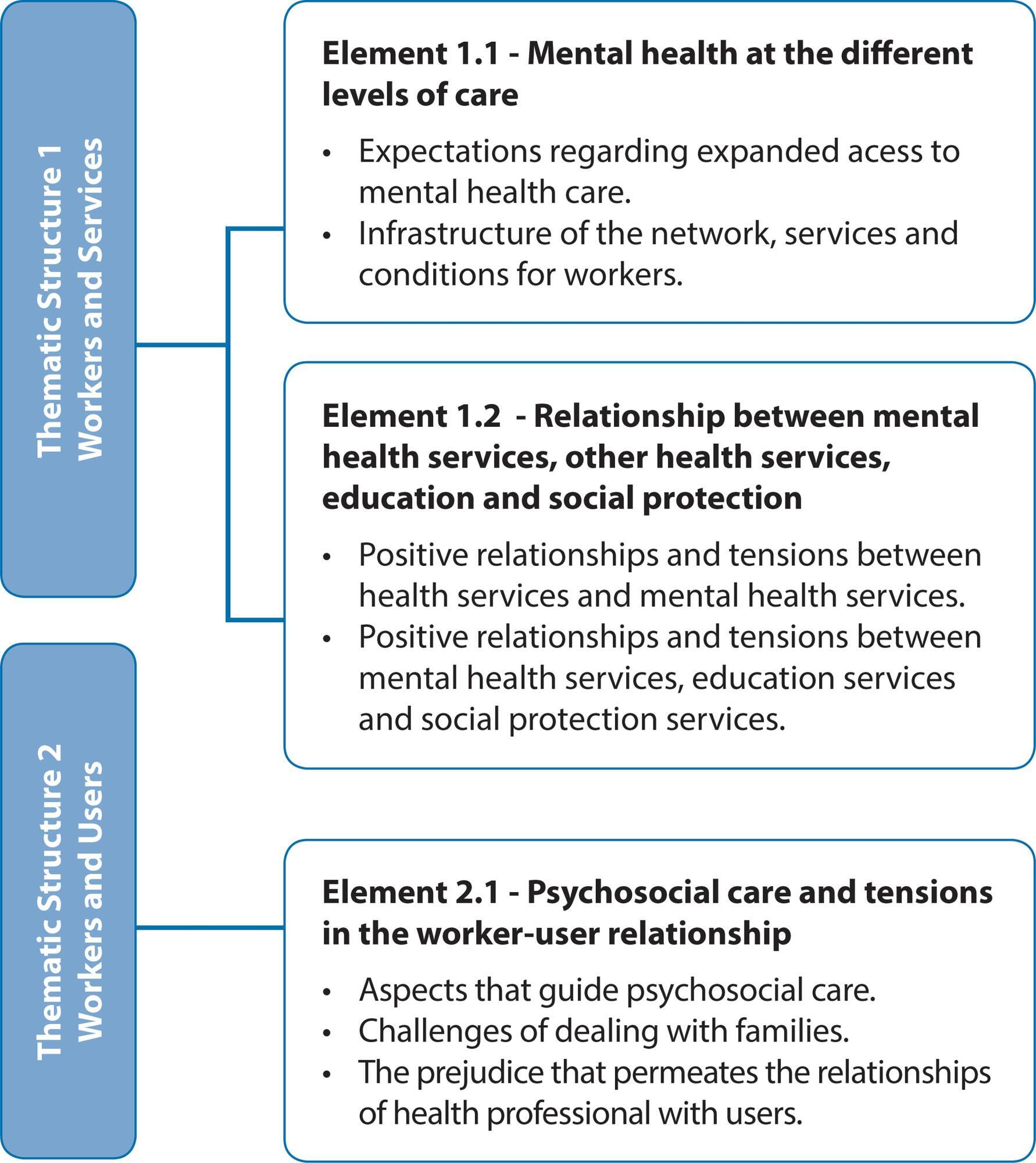-
ORIGINAL ARTICLE
Psychosocial care network: managers’ perception and tensions of the field
Revista Brasileira de Enfermagem. 2020;73:e20180844
06-01-2020
Abstract
ORIGINAL ARTICLEPsychosocial care network: managers’ perception and tensions of the field
Revista Brasileira de Enfermagem. 2020;73:e20180844
06-01-2020DOI 10.1590/0034-7167-2018-0844
Views0ABSTRACT
Objective:
to analyze the perception of workers and managers about the psychosocial care network in a medium-sized municipality in the inlands of the state of Minas Gerais.
Method:
qualitative, descriptive and exploratory study involving twelve participants from different points of the network. The semi-structured interviews were analyzed in the light of Pierre Bourdieu’s framework of constructionist structuralism.
Results:
the actions offered by the services were based on the perspectives of resocialization, user embracement, group and multiprofessional care, and on approaches to harm reduction, recreation and daily organization. These were configured as the network resources/capital. Tensions were identified in family embracement and in relationships between families and users, as well as in the prejudice towards people with mental disorders.
Final considerations:
the social agents were willing to contribute to processes of change in order to overcome the focus on specialties, the lack of training of some teams, lack of infrastructure and of some components, especially those related to leisure and community life.
Keywords:DeinstitutionalizationHealth Services ResearchMental HealthMental Health CareMental Health ServicesSee more
-
ORIGINAL ARTICLE
Deinstitutionalization and network of mental health services: a new scene in health care
Revista Brasileira de Enfermagem. 2020;73:e20180964
06-01-2020
Abstract
ORIGINAL ARTICLEDeinstitutionalization and network of mental health services: a new scene in health care
Revista Brasileira de Enfermagem. 2020;73:e20180964
06-01-2020DOI 10.1590/0034-7167-2018-0964
Views0See moreABSTRACT
Objective:
to analyze the process of deinstitutionalization resulting from a psychiatric hospital shut down, and know the fate of users after dehospitalization.
Method:
a descriptive, qualitative study based on the critical-analytical perspective, which had as its setting the Hospital Colônia de Rio Bonito. Institutional documents and narratives of five managers who participated in the deinstitutionalization process were analyzed.
Results:
Hospital Colônia deinstitutionalization lasted longer than expected. For this to happen, a tripartite intervention was necessary, and especially the mobilization of networks and implementation of Psychosocial Care Networks by the cities. Regarding destination of users, most were referred to therapeutic or transinstitutionalized residences.
Final considerations:
Hospital Colônia deinstitutionalization led to the establishment of connections between services and people. This was a powerful device for the implementation of Psychosocial Care Networks at municipal level.
-
ORIGINAL ARTICLE
Inclusion of mental health in primary health care: care strategy in the territory
Revista Brasileira de Enfermagem. 2019;72(6):1677-1682
10-21-2019
Abstract
ORIGINAL ARTICLEInclusion of mental health in primary health care: care strategy in the territory
Revista Brasileira de Enfermagem. 2019;72(6):1677-1682
10-21-2019DOI 10.1590/0034-7167-2018-0806
Views0See moreABSTRACT
Objective:
To analyze the strategies, challenges and possibilities of the articulation between mental health and primary health care from the perspective of health managers.
Method:
Exploratory, qualitative research carried out with 28 managers of mental health and primary care. The data were collected through semi-structured interviews between July and November 2013 and submitted to thematic content analysis.
Results:
The inclusion of mental health actions in primary care made it possible, in the view of managers, to increase users’ access to the care they need. This care strategy allows the extension of care practices in the territory, with matrix support as the main tool for the implementation of this care strategy.
Final considerations:
The articulation between primary care and mental health is a powerful device for psychosocial care, but it demands a new conformation of the Psychosocial Care Centers (Caps) and primary care services.



